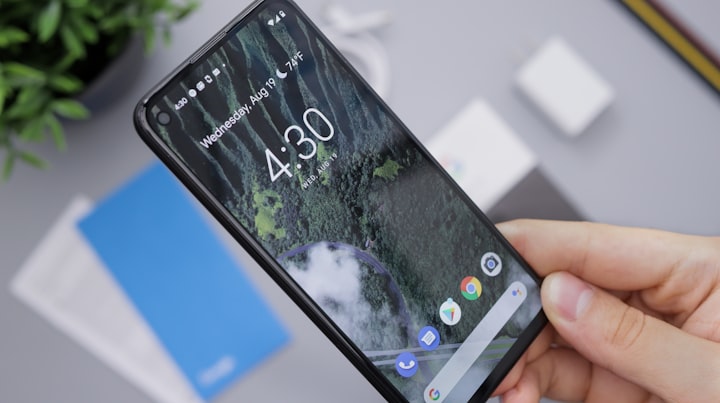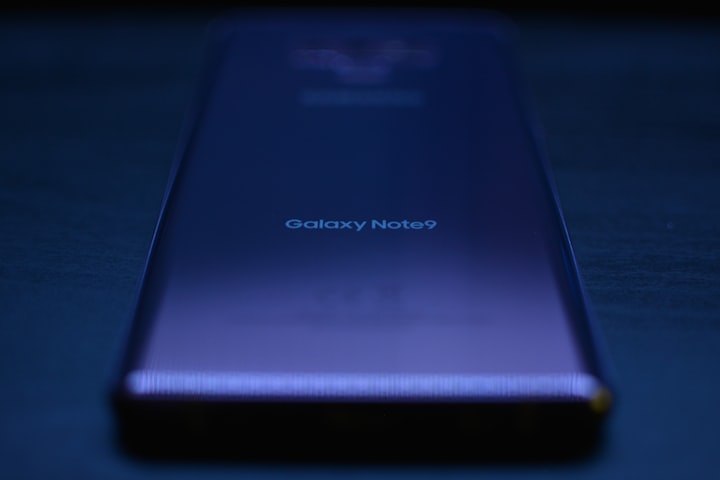The future of mobile phone technology: what can we expect?
Mobile technology advancement in future

Mobile phone technology has come a long way since the first mobile phone was invented in the 1970s. Today, smartphones are an indispensable part of our lives, with over 3.8 billion people using them worldwide. With the rapid pace of technological innovation, it's interesting to wonder what the future of mobile phone technology will look like. In this blog post, we'll explore some of the advancements we can expect to see in the coming years.
5G Networks
One of the biggest advancements in mobile phone technology in recent years has been the introduction of 5G networks. 5G promises to be faster and more reliable than 4G networks, with lower latency and higher bandwidth. This will enable a range of new applications, such as real-time virtual and augmented reality, self-driving cars, and remote surgery. While 5G is already available in some areas, it's expected to become more widespread in the coming years.
Foldable Phones
Foldable phones have the potential to revolutionize mobile phone technology advancements. These phones are designed with a flexible display that can be folded, allowing users to enjoy a larger screen without sacrificing portability. Foldable phones offer a host of benefits, including improved multitasking, increased screen real estate, and enhanced durability. For instance, users can open up multiple apps at once and have them side by side, which makes it easier to get things done quickly and efficiently. With a larger screen, users can also enjoy a more immersive viewing experience, whether they are watching videos, playing games, or browsing the web. Additionally, foldable phones are more durable than traditional phones since they have fewer moving parts and are less likely to break if dropped. This makes them a great option for people who are on the go and need a reliable device that can withstand everyday wear and tear. Overall, foldable phones are a promising technology that has the potential to change the way we use our mobile devices.
Artificial Intelligence
Artificial intelligence (AI) is already being used in smartphones to power features like facial recognition and voice assistants. However, the potential for AI in mobile phones goes much further. For example, AI could be used to analyze data from sensors to detect and diagnose health problems, or to automatically enhance photos and videos taken on the phone. As AI algorithms become more powerful, we can expect to see more advanced applications in the future.
Augmented Reality
Augmented reality (AR) is another area where we can expect to see significant advancements in mobile phone technology. AR overlays digital content onto the real world, creating new possibilities for gaming, education, and entertainment. For example, you could use your phone to see a virtual tour of a museum, or play a game that takes place in the real world. With the development of 5G networks and more powerful processors, we can expect to see more sophisticated AR applications in the future.
Biometrics
Biometrics is a field of enhance the gy that involves using unique biological characteristics of individuals to verify their identity. The advancements in biometrics have brought about significant improvements in mobile phone technology. One of the primary benefits of using biometrics in mobile phones is increased security. Biometric authentication methods, such as facial recognition and fingerprint scanning, are more secure than traditional password or PIN methods as they cannot be easily replicated or stolen. This reduces the risk of unauthorized access to sensitive information on mobile devices.
Moreover, biometrics can enhance user experience and convenience by allowing for quick and easy access to devices and applications. Users no longer need to remember complex passwords or input them every time they want to access their phones or specific applications. Biometric authentication methods are also faster and more seamless than traditional authentication methods, which can improve the overall user experience.
In conclusion, the future of mobile phone technology looks exciting and promising. With advancements in 5G networks, foldable phones, AI, AR, and biometrics, we can expect to see new and innovative applications that we can't even imagine today. While we can't predict the future with certainty, one thing is for sure: mobile phone technology will continue to evolve and transform the way we live our lives.






Comments
There are no comments for this story
Be the first to respond and start the conversation.